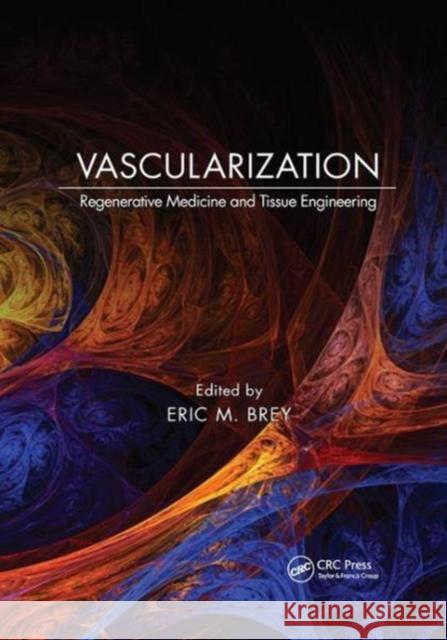Vascularization: Regenerative Medicine and Tissue Engineering » książka
Vascularization: Regenerative Medicine and Tissue Engineering
ISBN-13: 9781138076037 / Angielski / Miękka / 2017 / 397 str.
Vascularization: Regenerative Medicine and Tissue Engineering
ISBN-13: 9781138076037 / Angielski / Miękka / 2017 / 397 str.
(netto: 354,95 VAT: 5%)
Najniższa cena z 30 dni: 352,57 zł
ok. 16-18 dni roboczych.
Darmowa dostawa!
A Complex and Growing Field
The study of vascularization in tissue engineering and regenerative medicine (TERM) and its applications is an emerging field that could revolutionize medical approaches for organ and tissue replacement, reconstruction, and regeneration.
Designed specifically for researchers in TERM fields, Vascularization: Regenerative Medicine and Tissue Engineering provides a broad overview of vascularization in TERM applications. This text summarizes research in several areas, and includes contributions from leading experts in the field. It defines the difficulties associated with multicellular processes in vascularization and cell-source issues. It presents advanced biomaterial design strategies for control of vascular network formation and in silico models designed to provide insight not possible in experimental systems. It also examines imaging methods that are critical to understanding vascularization in engineered tissues, and addresses vascularization issues within the context of specific tissue applications.
This text is divided into three parts; the first section focuses on the basics of vascularization. The second section provides general approaches for promoting vascularization. The final section presents tissue and organ-specific aspects of vascularization in regenerative medicine.
Presents Areas of Substantial Clinical and Societal Impact
The material contains research and science on the process of vessel assembly with an emphasis on methods for controlling the process for therapeutic applications. It describes the tissue and organ-specific aspects of vascularization in regenerative medicine, and refers to areas such as bone tissue engineering, vascularization of encapsulated cells, adipose tissue, bone and muscle engineering. It also provides a mechanistic understanding of the process and presentation of experimental and computational approaches that facilitate the study of vascular assembly, and includes enabling technologies such as nanotechnology, drug delivery, stem cells, microfluidics, and biomaterial design that are optimized for supporting the formation of extensive vascular networks in regenerative medicine.
A guide for researchers developing new methods for modulating vessel assembly, this text can also be used by senior undergraduate and graduate students taking courses focused on TERM.











